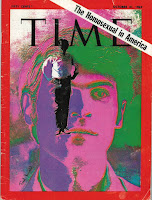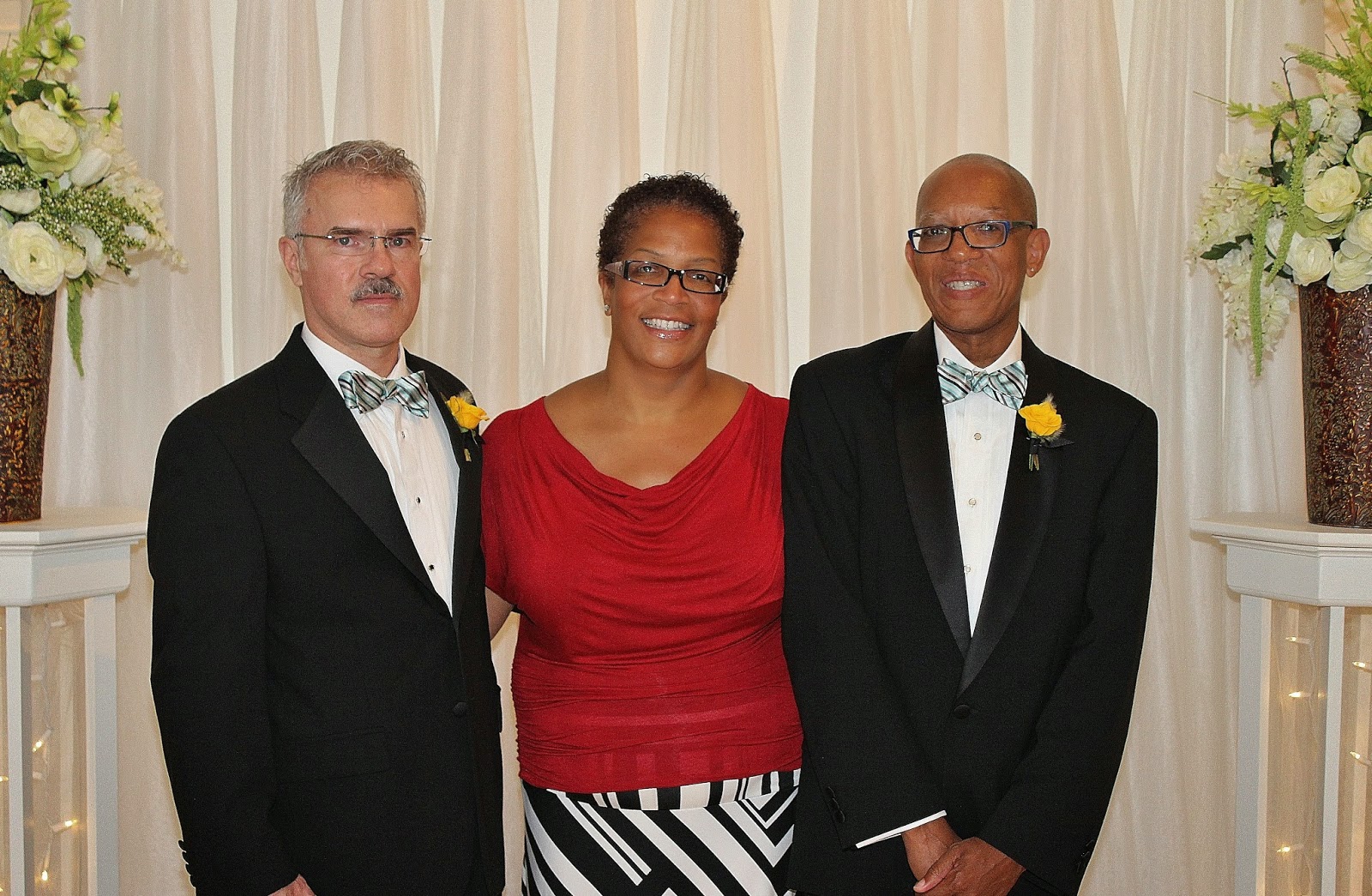Other Voices. Other Mansions.
In my Father's house
are many mansions: if it were not so, I would have told you. I go to prepare a
place for you. — John 14:2, King James Version
Having discovered I was gay at a time when gays didn’t have
much visibility, by the time I got to college, I was starved for stories about
men and boys like me, books that’s showed me what my life could be. I discovered
Patricia Nell Warren’s The Front Runner
in Penn’s campus bookstore quite unexpectedly freshman year. I read it in a single
weekend while my roommates were away at a track meet. Next I read The Fancy Dancer, also by Nell Warren.
Then came books by Gordon Merrick, and others whose authors and plots I have
forgotten. I remember I was dissatisfied though, because nearly a decade after
Stonewall, after gays first appeared on the cover of Time magazine, the movement was still pretty much whitewashed,
especially in gay fiction, which was rife with pretty, slim, slutty whiteboys
drinking, partying and having lots of sex. I wasn’t white or pretty, nor was I
particularly interested in an endless stream of sex partners. Yet it seemed to
me that was the only option available to men like me.
Fast forward a couple of decades and I was still reading books that didn’t reflect
my experience—and by then I’d actually had
experiences—and whose characters still didn’t look much like me.
Fast forward to today, when so called “m/m fiction” is practically
mainstream, despite the proliferation of mermen and shifters and werewolves,
the very contemplation of which leaves me breathless and headachy, there is a
staggering sameness, a whiteness that is almost blinding.
Where are the LGBT people of color? The effeminate? Where
are the men who find love and commitment in a world that is often hostile and
unwelcoming, that is problematic, even in its acceptance? Where is the
diversity of the LGBT experience?
Happily, those stories are
being written. You just have to look. In this blog post, I celebrate five
of them, including one of my own. For I realized that if Mahatma Gandhi could
advise, “Be the change that you wish to see in the world,” I could bloody well
write the books I wanted to read.
Unbroken by Larry
Benjamin
 In Unbroken, Lincoln is black and from the Bronx, but his parents are West Indian, solidly middle-class, and both class- and color-conscious. Lincoln is from the Bronx but not of the
Bronx. The book is unabashedly romantic but I also wanted it to be a realistic portrayal
of what it is like to grow up different, gay, black. I wanted to point out the casual
cruelty of adults, especially parents, and the damage they do when they try to change
us.
In Unbroken, Lincoln is black and from the Bronx, but his parents are West Indian, solidly middle-class, and both class- and color-conscious. Lincoln is from the Bronx but not of the
Bronx. The book is unabashedly romantic but I also wanted it to be a realistic portrayal
of what it is like to grow up different, gay, black. I wanted to point out the casual
cruelty of adults, especially parents, and the damage they do when they try to change
us.
“I spoke late and when
I eventually discovered words, I spoke to my parents of little things, childish
things. Distracted, they paid no attention to my words but they noticed my
hands. Stop it with the hands, they said. They flutter like little birds, they said.
Boys’ hands don’t flutter like little birds, they said. They made me sit on my
hands when I spoke. If I was standing, I had to clasp my hands behind my back.
My hands stilled, my words failed. I grew quiet. Later when I had bigger, more
important things to speak of, I remained quiet, kept everything locked inside.”
Lincoln is disillusioned after he realizes his parents’
insistence that he will change is, in fact, a lie. He keeps this knowledge to
himself, determined to remain himself, to one day escape:
“You can’t fall in
love with another boy, they’d told me. But I had! How could I not fall in love
with the wonder of him?
This time I was smart
enough to tell no one.”
Unbroken is a 2014 Lambda Literary Award finalist.
Unbroken is a 2014 Lambda Literary Award finalist.
A Love Like Blood by
Victor Yates
A Love Like Blood is set in the mid-West. The protagonist, Carstyn
Tynes, is half Cuban and half Somali. Carstyn’s is a distinctly Somali experience:
“…Somali boys are divined
to become fathers. And, fathers’ bodies are like God’s body. The body of an
ungodly man is a coffin.”
It can be a hard book to read; brutal and to the point, it
underscores the horrors, both petty and damaging, rained down upon our gay
youth, often by the very people who are supposed to love and protect them.’
experience is singular and brings that horror to light.
Carsten fears he will be forced to live a lie and wonders if
death is the only way out of the prison of his father’s will:
“Often, long-term
prisoners commit suicide when their request for parole return denied. Recently,
I started asking myself, what if I remain in confinement forever from father
forcing me to marry my ex-girlfriend. In those moments, death seemed to me the
quickest way to unglue the cinderblocks.”
With a preponderance of books featuring “alpha males,” the
effeminate man seems to have been erased. I was happy to see him return,
celebrated, in this book:
“…I realize what
attracts me to him. It is his movement between masculine and feminine. At first
his sexuality was a question mark blinking in front of me, because of his manly
appearance and effeminate behaviors. There is a disquieting beauty to the
contrast…”
A Love Like Blood is a 2016 Lambda Literary Award finalist, debut fiction category.
A Love Like Blood is a 2016 Lambda Literary Award finalist, debut fiction category.
When Skies Have
Fallen by Debbie McGowan
McGowan paints a vivid picture of a time when a letter to
one had to be addressed to another to avoid detection, prosecution; when the
police could break down a door to discover who a bachelor shares his bed with. The
book also touches on physical disability, electro-shock therapy as a treatment
for homosexuality, the awful cost of silence, imprisonment, and the dubious
value of war.
To me these are the stories which inform the current spate
of fiction where boys can love each other freely and openly, yet these stories so
often go untold, the preference being to ignore difficulties and celebrate
rainbows and unicorns—for difficulty has no place amidst heavy breathing, rapid
heartbeats and the crinkle of sheets.
When Skies Have Fallen is a 2016 Lambda Literary Award finalist, Gay fiction category.
When Skies Have Fallen is a 2016 Lambda Literary Award finalist, Gay fiction category.
Chulito by Charles
Rice Gomez
Chulito is set in the
Bronx, but unlike the Bronx in Unbroken,
this Bronx is one of drugs and gangs. I
love that particular divergence in viewpoint, in experience.
I picked up this book because it fell outside the
traditional white homo-normative narrative of popular gay fiction.
Rice-Gonzalez gives voice to the previously voiceless―the inner city Hispanic,
the drug underlord, the gay gangsta―and what a voice it is, solid and true.
Just as it was the effeminate, the drag queens who launched
Stonewall, here too it is the neighborhood queens who rise up and fight back
when they’ve had enough. The powerless become powerful, the victims become
warriors and a high-heeled shoe becomes a weapon of retribution; two queens
show a neighborhood what it means to be a man.
I Knew Him by Erastes
 This book. This! Book! It will seem an unlikely choice here
but if we are talking diversity, a The Great Gatsby, in Maurice, Hell even in my first book What Binds Us—but this book is different
from those.
This book. This! Book! It will seem an unlikely choice here
but if we are talking diversity, a The Great Gatsby, in Maurice, Hell even in my first book What Binds Us—but this book is different
from those.
And yes, we’ve seen the evil gay character before, but Harry George Alexander
Bircham redefines that character. Driven by a touching, if obsessive, love that
allows him to justify about any action, he is remarkable character, likeable
and charming despite his Machiavellian deceits.
So, if you’ve been looking for books that are just a little different,
that provide diverse characters ad a different world view, I encourage you to
pick up one—or all –of the books
mentioned here. Even if you think you have no interest in reading a book that’s
different from what you usually read, I challenge you to pick up and read one
of these anyway—just to see what you might be missing.
Read a book that's different? Share it in the comments below.







Comments
Post a Comment